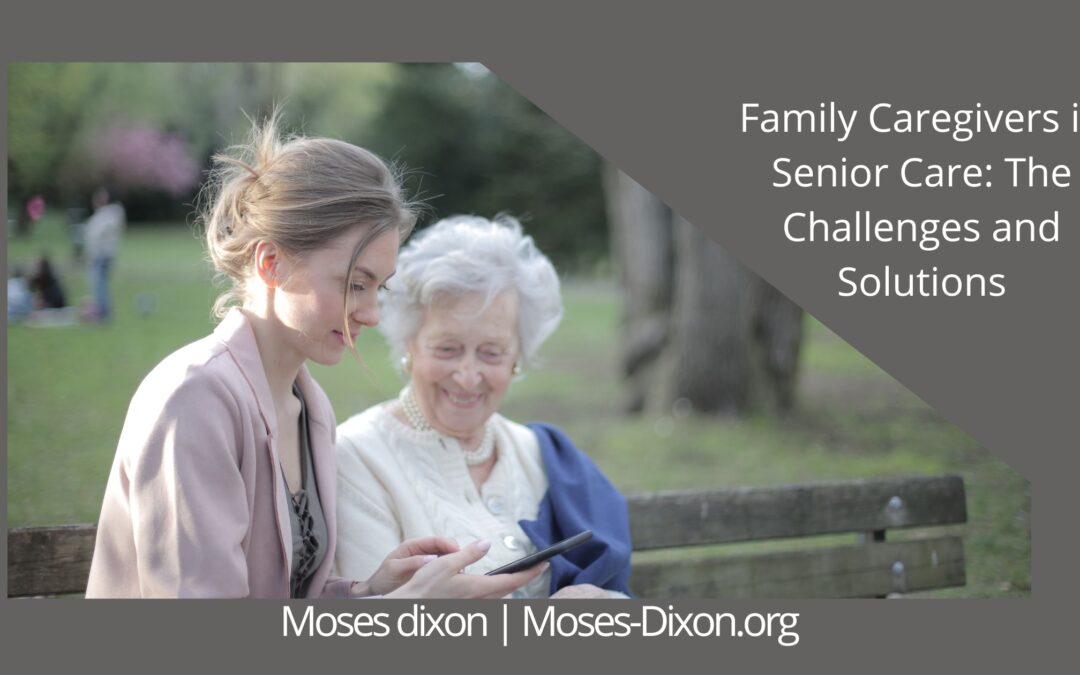Caring for aging loved ones is a profound responsibility that many family members undertake with love and dedication. Family caregivers play a crucial role in senior care, providing physical, emotional, and often financial support to ensure the well-being of their aging relatives. However, this noble task has its challenges.
Emotional and Physical Stress
One of the primary challenges faced by family caregivers is the emotional and physical toll it takes on them. Balancing the demands of caregiving with other responsibilities can lead to stress, exhaustion, and burnout. Witnessing the decline in the health and independence of their loved ones can be emotionally draining. Furthermore, physical tasks like lifting, bathing, and assisting with mobility can strain the caregiver’s health.
Self-Care and Support Networks
To address these challenges, family caregivers must prioritize self-care. This includes finding time for rest, exercising, and maintaining their social connections. Seeking support from family, friends, and caregiver support groups can provide a vital outlet for sharing experiences and receiving guidance. Additionally, respite care services or home healthcare aides can temporarily relieve caregivers, allowing them to recharge and attend to their well-being.
Financial Burden
Another significant challenge for family caregivers is the financial strain associated with senior care. Caregiving often involves medical bills, medication costs, home modifications, and transportation. Family caregivers may have to take time off or reduce their working hours, resulting in reduced income and potential career setbacks.
Financial Planning and Assistance
Creating a comprehensive financial plan can alleviate some of the burdens. Family caregivers should explore resources such as government assistance programs, insurance benefits, and tax deductions specifically designed to support caregivers. Seeking financial advice from professionals experienced in senior care can provide valuable insights and options for managing costs effectively.
Lack of Professional Training
Many family caregivers step into their roles without formal training or prior experience in healthcare. This lack of knowledge can make providing optimal care, managing medical conditions, and navigating complex healthcare systems challenging.
Education and Training Programs
To bridge this gap, caregivers can benefit from educational programs and training workshops tailored to their needs. These programs offer valuable information on caregiving techniques, disease management, medication administration, and communication skills. Organizations such as local hospitals, senior centers, and online platforms provide resources and training opportunities for family caregivers.
Time Management and Work-Life Balance
Balancing caregiving responsibilities with work and personal commitments can be overwhelming. Many caregivers struggle to find time for their needs, such as pursuing hobbies, spending time with friends, or simply taking a break.
Time Management Strategies and Flexibility
Implementing effective time management strategies can help caregivers achieve a better work-life balance. This may involve setting realistic expectations, prioritizing tasks, and delegating responsibilities. Exploring flexible work arrangements, such as remote work or adjusted schedules, can provide caregivers with the necessary flexibility to fulfill their caregiving duties while maintaining their careers.
Family caregivers play an indispensable role in senior care, but they face numerous challenges in fulfilling their responsibilities effectively. Society must recognize the immense contributions of family caregivers and offer them the resources, assistance, and understanding they need to continue providing quality care to their aging loved ones.
